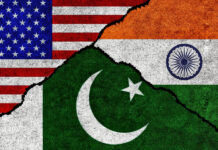The World Health Organization (WHO) declared on Wednesday that the coronavirus outbreak could now be characterised as a “pandemic”. The declaration came as the coronavirus cases are sharply increasing around the world. The WHO also added that Italy and Iran were now on the frontline of the disease and other countries would soon join them. The outbreak of coronavirus was declared as a pandemic as the United States stocks plunged into bear market territory and several American cities joined European counterparts in banning large gatherings due to the alarming levels of its spread. “We are deeply concerned both by the alarming levels of spread and severity and by the alarming levels of inaction. We have therefore made the assessment that COVID-19 can be characterised as a pandemic,” WHO Director General Tedros Adhanom Ghebreyesus said. The WHO chief, however, maintained that the designation of the coronavirus as a pandemic did not mean the situation was hopeless. “All countries can still change the course of this pandemic,” he said. Addressing a news conference on Wednesday, the WHO chief urged the global community to redouble efforts to contain the coronavirus outbreak, saying aggressive measures could still play a big role to curb it. “We have called every day for countries to take urgent and aggressive action. We have rung the alarm bell loud and clear,” Tedros Adhanom Ghebreyesus said. WHAT IS A PANDEMIC A pandemic is a worldwide spread of a disease or an infection. The term is associated with the geographic spread and not any characteristic changes in the infection itself. WHO officials have signalled for weeks that they may use “pandemic” as a descriptive term but added that it does not carry any legal significance. The WHO no longer has a category for declaring a pandemic, except for influenza. The novel coronavirus is not the flu. However, the term should not be confused with an outbreak and an epidemic. HOW IS PANDEMIC DIFFERENT FROM EPIDEMIC Epidemic comparatively affects fewer number of people and is confined to a certain region. An outbreak is usually the first stages of an epidemic. An epidemic affects a region or a country and starts infecting a large part of the population. The word epidemic originates from the Greek word ‘epidemia’ while the word pandemic originates from the word ‘pandemos’, which denotes “all people”. The ebola spread was an epidemic that affected western Africa and resulted in the deaths of thousands over some years. The SARS outbreak in China was also an epidemic that killed over 800 people. A pandemic is when a disease rapidly starts spreading across the world and is no longer restricted to a community or region. The world has seen a number of pandemics in the past involving diseases such as plague, influenza, yellow fever and others. The latest pandemic is the first caused by coronavirus. More than 118,000 cases of coronavirus have emerged in 114 countries and 4,291 people have died so far. The coronavirus, which emerged in China in December, has spread around the world, halting industries, markets, bringing flights to a standstill, prompting the latest oil price war, locking down entire nations, closing schools and forcing the postponement of events and concerts across the world. The WHO declared a public health emergency of international concern, its “highest level of alarm”, on January 30 when there were fewer than 100 cases of COVID-19 outside China. Tedros Adhanom Ghebreyesus said the casualties and number of infected persons are expected to rise. In the past two weeks the number of cases outside China had risen 13-fold, and the number of countries affected had tripled, a sombre-looking Tedros said, displaying little of his normally upbeat persona.

Dogra Herald is the media of J & K, breaking language and geographical barriers, connecting J & K to the rest of India.
0191 245 4946
info@dograherald.com
Latest articles
Mobile phone without SIM recovered from Central Jail in Jammu
DOGRA HERALD BUREAUJAMMU, Jan 2A mobile phone without a SIM, an earphone and an adapter were seized from the premises of the...
Srinagar administration facilitates GATE 2020 aspirants
iamjkstarr - 0
The Srinagar administration has made arrangements to facilitate registration of aspirants for the Graduate Aptitude Test in Engineering or GATE 2020. Three counters have...
DHSS celebrates Baisakhi with great fervour
DOGRA HERALD BUREAUJAMMU, Apr 12The students and staff of Dogra Hr Sec School celebrated Baisakhi with great...


























